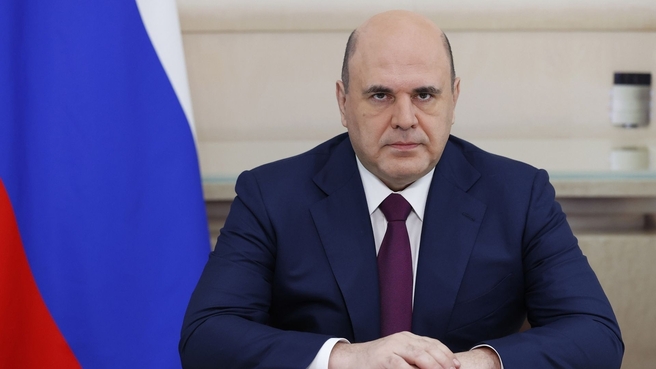Agenda: Increasing social benefits, applying for COVID-19 vaccination exemption certificate via the Gosuslugi public services website, supporting regional outpatient clinics during the pandemic, promoting fitness and sports.
Mikhail Mishustin’s opening remarks:
Good afternoon, colleagues.
We will start today’s Government meeting with an important issue that concerns many Russian citizens, especially families with children, people with health restrictions and occupational disabilities, as well as veterans. They are particularly vulnerable and need state support.
Every year on 1 February, we increase the rate for a number of social benefits. This year, the monthly benefits paid to these categories of citizens will be raised by 8.4 percent, as instructed by the President.
One-time benefits paid to pregnant women and women who have given birth will be increased as well.
The maternity capital for the first child will be increased from almost 484,000 roubles to 524,000 roubles, and for the second and subsequent children to over 693,000 roubles. It is crucial that every person entitled to these benefits receive them on time and in full.
Here is another decision: the Government is expanding the capabilities of the Government Services website. Today, personal accounts contain data on Covid-19 vaccinations, as well as information on the recovery from Covid-19. The website will soon feature personal data on vaccine exemptions. People will be able to obtain certificates of confirmation using the Government Services website. The relevant Government resolution has been signed.
I would like to note that doctors alone decide on vaccination exemptions after evaluating a patient’s condition and studying his or her medical record. In all other cases, it would be better to get jabbed and to protect one’s health.
The agenda of today’s Government meeting also includes the Covid-19 response effort. Unfortunately, the number of Covid-19 cases continues to increase. Due to the specific features of the disease, people have started contacting outpatient clinics more often. The network of outpatient clinics is now bearing the brunt of the pandemic. It is important to ensure its stable operations in these challenging conditions.
We will allocate an additional 7.3-plus billion roubles for supporting regional outpatient clinics. This funding will continue to facilitate free primary care under compulsory medical insurance policies. I am asking the Ministry of Health to make sure that territorial compulsory medical insurance funds obtain federal transfers as soon as possible. The uninterrupted operation of the entire primary care system depends on this.
Today, we will also discuss the creation of favourable conditions for an active lifestyle, physical fitness and sport opportunities. People’s health and wellbeing are a national development goal, set by the President. To achieve this goal, it is important that every person be able to train near his or her place of residence.
This year, we have started implementing the Business Sprint federal project, drafted under one of the 42 strategic initiatives of Russia’s socioeconomic development up to 2030. We discussed it in detail at our Tuesday meeting. The project calls for creating the required neighbourhood sport infrastructure in cities and villages over the next eight years. Today, we will discuss the allocation of regional subsidies for building over 80 modular gyms and almost 200 smart sports grounds in the next three years. These well-equipped sports grounds will provide internet access, so that each visitor can make personal workout schedules and see whether he or she is exercising correctly.
For these purposes, the federal budget provides over nine billion roubles under the Business Sprint project. Of this sum, Russian regions will receive almost 2.5 billion before the year is out.
A concept for developing children’s and youth sports was recently approved. It calls for building and modernising the sport infrastructure, including modular gyms, swimming pools and street workout facilities, so that children and teenagers would be able to train in any city or town.
This will make it possible to create a people-friendly environment for physical fitness and sport enthusiasts and to motivate Russians to lead a healthy lifestyle.













